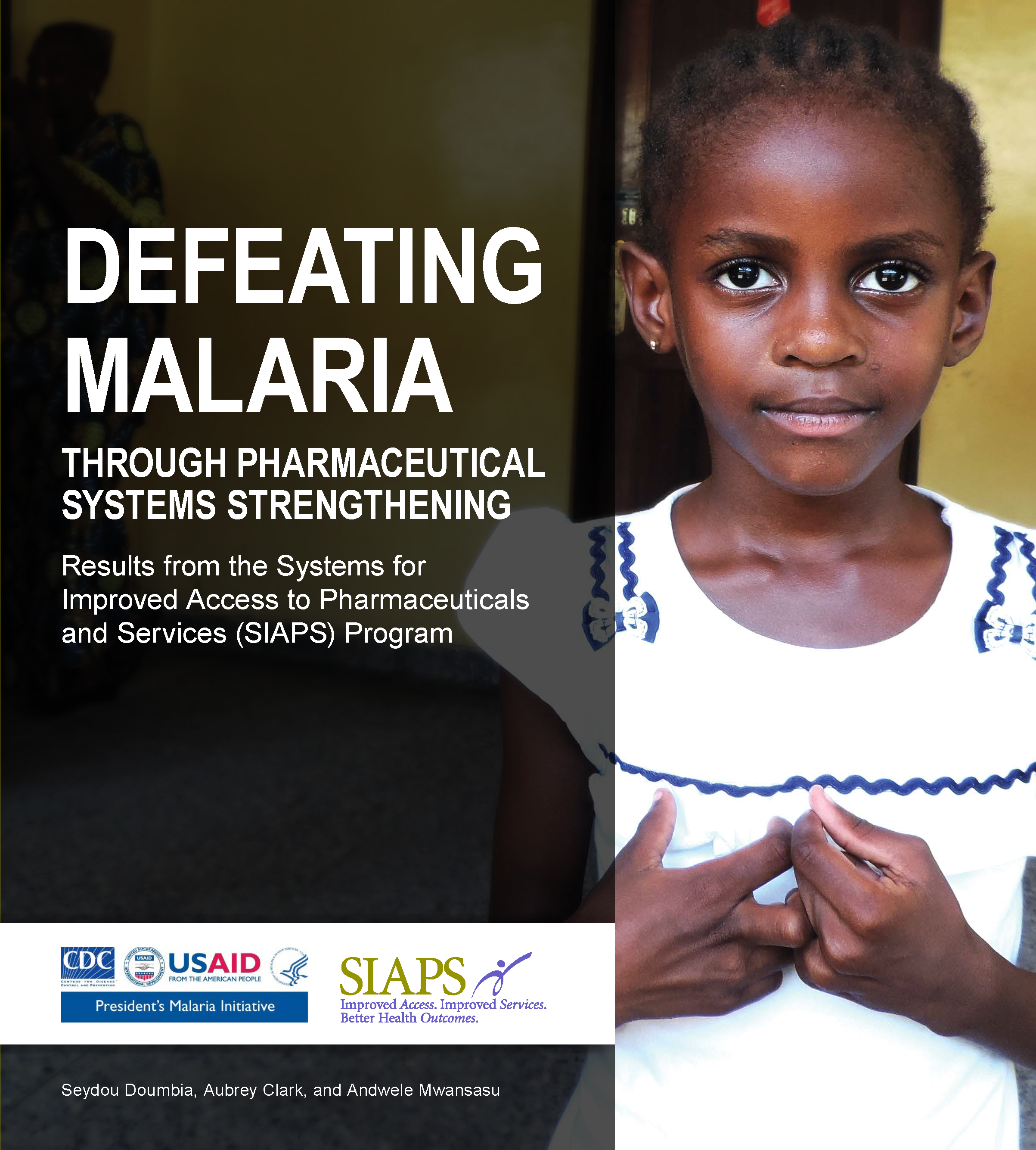 SIAPS recently published the results of its activities in eight countries (Angola, Burundi, the Democratic Republic of the Congo (DRC), Ethiopia, Kenya, Guinea, Mali, and South Sudan) to control malaria.
SIAPS recently published the results of its activities in eight countries (Angola, Burundi, the Democratic Republic of the Congo (DRC), Ethiopia, Kenya, Guinea, Mali, and South Sudan) to control malaria.
This report summarizes systems strengthening interventions that support the prevention and treatment of malaria. With funding from the US President’s Malaria Initiative (PMI) and based on PMI’s priorities, SIAPS provided assistance to build capacity to manage malaria products and to strengthen financing strategies and mechanisms that would improve access to malaria medicines and the quality of pharmaceutical services for malaria patients.
This report highlights the work carried out by SIAPS with countries’ national malaria control programs (NMCPs) to improve and streamline the management of malaria commodities. SIAPS helped NMCP staff implement locally responsive and feasible solutions while adapting this support to each country’s context and challenges, including optimizing the organizational structure and developing standards and guidelines. In South Sudan, the program partnered with the NMCP to revise the national malaria strategic plan. This successful reform was recognized by organizations like the African Leaders Malaria Alliance, which acknowledged the NMCP with an award of excellence for Most Improved in Malaria Control in 2015.
The review also shows the importance of coordination among pharmaceutical technical working groups to enhance procurement practices and ensure a continuous supply of medicines. For example, SIAPS supported the establishment of coordination committees in DRC to help centralize the storage of commodities from different programs and improve the overall efficiency of product distribution.
This report is a unique opportunity to present user-friendly platforms and dashboards put in place by SIAPS to increase the availability of data and introduce new early warning systems to prevent stock-outs of malaria commodities.
Although strengthening health systems takes time, SIAPS’ work to leverage collaborations as well as the launch of web-based tools and other innovations will enable countries to increase and maintain effective interventions to support the prevention and treatment of malaria.
Read our full report here.

